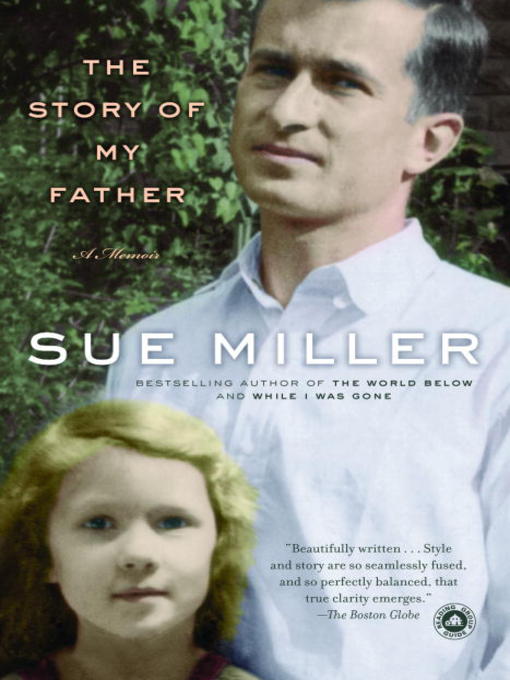
James Nichols was a fourth-generation minister, a retired professor from Princeton Theological Seminary. Sue Miller brings her father brilliantly to life in these pages-his religious faith, his endless patience with his children, his gaiety and willingness to delight in the ridiculous, his singular gifts as a listener, and the rituals of church life that stayed with him through his final days. She recalls the bitter irony of watching him, a church historian, wrestle with a disease that inexorably lays waste to notions of time, history, and meaning. She recounts her struggle with doctors, her deep ambivalence about many of her own choices, and the difficulty of finding, continually, the humane and moral response to a disease whose special cruelty it is to dissolve particularities and to diminish, in so many ways, the humanity of those it strikes. She reflects, unforgettably, on the variable nature of memory, the paradox of trying to weave a truthful narrative from the threads of a dissolving life. And she offers stunning insight into her own life as both a daughter and a writer, two roles that swell together here in a poignant meditation on the consolations of storytelling.
With the care, restraint, and consummate skill that define her beloved and best-selling fiction, Sue Miller now gives us a rigorous, compassionate inventory of two lives, in a memoir destined to offer comfort to all sons and daughters struggling-as we all eventually must-to make peace with their fathers and with themselves.
-
Creators
-
Publisher
-
Release date
December 18, 2007 -
Formats
-
Kindle Book
-
OverDrive Read
- ISBN: 9780307432667
-
EPUB ebook
- ISBN: 9780307432667
- File size: 2360 KB
-
-
Accessibility
-
Languages
- English
-
Reviews

Loading
Formats
- Kindle Book
- OverDrive Read
- EPUB ebook
subjects
Languages
- English
Why is availability limited?
×Availability can change throughout the month based on the library's budget. You can still place a hold on the title, and your hold will be automatically filled as soon as the title is available again.
The Kindle Book format for this title is not supported on:
×Read-along ebook
×The OverDrive Read format of this ebook has professional narration that plays while you read in your browser. Learn more here.